It's all in our hands!
Emergency Appeal To Raise Sufficient Funds To Build Crossing | Opening Bridges In Koo | Greater Upper Nile At River Nile.Cash in ($ USD | euro | £ sterling | other currency)
Steels | Metals | Irons
Cement | Heavy Lifting Equipment | Cranes
Peter Gaisiance
Testimonial
I remember when I was a young lad, my father was paid a visit by a senior local government officials, who were accompanied by the two chiefs. They were highly received and sat down. he then feed them with fresh meat which he just slaughtered for them, and were given everything else the important visitors could receive. After a considerable amount of time spent on other conversations, the visitors began to state their case for the visit. They said, “Chief, we need your help.” “What kind of help, do you need my boys? Asked my father, who was recognized as an important person because of the extensive property he had, and also he was elected before to the position of the paramount chief. but he had to resign because he said he had so much to do and could not afford to be negligent by working with or for the government. His reason for resigning was later distorted in the local gossips | media that he resigned because he implied that only the poor people work for the government, which of course he denied. His son, my elder brother was then appointed by the President of the Higher Executive Council not to his place but as the chief between our people and the neighbouring tribe to prevent the youth fighting or from raiding each others’ villages and cattle camps. He was by our local standard thought to be amongst the richest men if not the only one in the whole region. He lived a humble but decent life and served the community very well during his time in the government and when he stepped down. After the visitors stated their reason for visiting, they said that President Jaapar Nimerie was coming soon to the town. He gave them two cattle and several sheep. Had we had chicken, he might as well give them some chicken as some people said but we did not keep them. We went to the town the following day and sat in the front row where important figures were allowed to sit. When President Nimerie arrived with two helicopters, he was highly received and feed with the locally produced, meat, milk, wines, and tested everything the people eat. Then he was told ‘Mr President, all these livestock and sheep were given to you by the local people.” He was thrilled and over the moon because he could not believe it. He then said, he had toured the whole country – every district, every town, every city and everywhere he went he would be thrown empty sacks because people were demanded some dora and weat etc because they were starved and need some urgent helps from the government. “You were the only people who had given me all these things.” he said. He then asked what was the biggest problem facing the people in these regions. They told him they need the bridges. “Is that all you wanted?” He asked and they confirmed to him nothing else. He promised that this will be built within six to twelve months but it was never built until the day he was deposed off from the office. I would not go into details about why that scheme had failed but I can tell you that the Nuer people who President Nimerie described as a very rich people were now the poorest people who have had ever lived in the whole country, because their property, their children and their livelihoods had been destroyed by so many arms groups who depend on them for the entire duration of the liberation struggle.
I had a conversation with some people who were bitter about the whole situation in the country and this is what they told me. “When the foreigners came to our homesteads, they would say, “Oh, you got a beautiful lifestyle,. Why do you wanted to change , why do you want to go to school and so forthit?” “But when the gun men with kaleidoscopes and machine guns came to the Nuer land | homestead, they looted their property, raped their girls and women, and sometimes killed people randomly. And when the people with the educational degrees came to the Nuer homestead, they distorted everything and said that this was the liberation struggles for their lands but within a few years after the cessation, there were more atrocities and massacred committed by those who benefited for using Nuer land for the liberation.
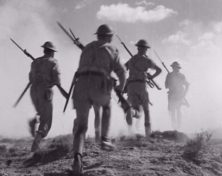
Why the (American – European) foreign agencies spent hundreds of millions of US dollars in Bahr el Ghazal (e.g., Gongrial Project funded by the European Union (EU) and in Greater Equatoria e.g., over $200m USD spent on road project from Juba to Uganda funded by the USAID and over $100m USD spent on the Juba bridge funded by the Japanese and not a single project was funded by all those donors anywhere in Greater Upper Nile? If all these donors were to be honest, if everybody were to be honest, then they would know that the liberation war that caused more than 2 million lives and countless damaged and destructions of properties and wildlife was fought and confined only to the Greater Upper Nile for the first fifteen years before it spread to other areas beyond Greater Upper Nile. The war was confined and concentrated in Greater Upper Nile for several reasons, chief of which is the sheer fact that all the multinational oil companies and the Jonglie Canal companies were all operated in the Nuer mainland in Greater Upper Nile. The governments under President Nimeiry (1969-1985, then Swar al-Dahab (1985-1986), then Ahmed al-Mirghani, then the elected Prime Minister Sadiq al Mahdi (1986-1989) then President Bashir (1989-2020) – all governments under leaderships of these guys had tried their best to defeat the rebels in the name of protecting the civilian population, the national interest, the Chevron oil exploration, Jonglie Canal companies and multinational companies’ operations. The rebels came from Eastern Nuer border with Ethiopia where they had their military training in Beilfam, outskirt of Itang, Bonga, Gora, Mato, Jimma, Malta, Agora, and outside of military garrison in the second biggest city in Ethiopia, Jima and the government troops operations concentrated in the regions near the said border to prevent the influx of the rebels coming into the Sudan territory. For the rebels, it was military strategic and different reasons mainly because those over 30,000 rebels who fought the government troops were mainly Nuer. Even though their leadership were not Nuer. They concentrated their operations in Greater Upper Nile because they relied on Nuer population for feeding and other supports. The rebel’s operations forced the Jonglie Canal which was controversial from the start to the end because it was a canal project started to divert water through the vast Sudd wetlands of South Sudan so as to deliver more water downstream to most dried land in the North Sudan then up to Egypt for use in agriculture, then, Chevron, and other multinationals companies to ground their operations to a halt which had a severe consequence for the regions’ economics and governments. The rebels also hoped to advance their operations toward the North: to reach Kosti, Mandani, Khartoum and so forth which they never did, for the simple fact that the governments outsourced the rebels as their resources were no match to the rebel’s resources. So, 80% of the war casualties included those over 2 million lives who were lost in the first fifteen years of the civil war were Nuer. If you were to doubt the credibility and the evidence of this testimonial, then, you do not even need the skilled archaeological surveys and highly selective excavation to find evidence for those who fought and were killed in this war. The evidence tells you that the Southern Sudan was decentralised into three regions, namely, Greater Equatoria, Bahr el Ghazal and Greater Upper Nile. Apart from the Greater Upper Nile, which we all know have paid heavy pride because of the civil war that was fought and confined in their regions. Did you named a single border’s post, district, town, or city in either Equatoria or Bhar el Ghazal which was attacked multiples times and captured by the rebels and then recaptured by the government troops or exchanged hands between the rebels and the governments troops in the first fifteen years of the civil war? Just named one place that had severely suffers the consequences of the civil war more than any place in Greater Upper Nile? If you do not challenge this evidence, then you will not challenge the fact that the first income that sustained the governments is the oil revenue which also come from Nuer land – Unity State and other places in Greater Upper Nile. So, why fifteen years after cessation there is not a single school, hospital, business, or institution functioning in Greater Upper Nile? And why would you not fund the road and bridges projects which connected the Western Bank and Eastern Bank of River Nile and opened a corridor toward the Ethiopia as you did to Uganda? Even though Museveni had never involved and helped in the liberation of the South, they caused so much damage to the population of the regions by interfered in their internal affairs after the independence. This hinders any sort of reparation to the people who severed the liberation wars or any sort of development in the regions.
Research Results!
In all my previous projects, I must do one thing first, which is to make research and collected all the relevant datasets about the issues at hand which facing a particular segment of society, then sat down and designed and outlined it. And this bridge project is not different. If you did not do your homework properly then that would be ignorant and naivety and both factors are extremely dangerous indeed.
Even though both my parents are Nuer that I was born to the Nuer family and grown up in Nuer country, when I was a young boy, every time I returned home from the boarding school during the holiday, I would travel with my father and my siblings around the country that was why I became exceptionally knowledgeable about the regions and its inhabitants than most people. And the fact that I was the only person from the UK who transported with several big aircrafts thousands of child-minors who were separated from their families during the war and who were forced from the refugee camps in Itang to returns to their regions following the falls of the President Mengistu Haile Mariam with the help of UNICEF, International Red Cross, UN and other NGOs, who partially paid for their transportation by airs because it was impossible to transport them by land partly because of lack of bridges and roads and partly because of the security issues at the time, I did my research and collected relevant data not only about previous governments attempts to construct the bridges in these regions but also about the leaders who claimed to represent the inhabitants of these regions, about their background, families, and whether they have homes in their constituencies which they could return to every now and then.
Having said that, a lot of people did not know this simple fact that both long-reigned rulers in the country, President Bashir on the photo on the right and President Nimeire on the left were the sheer products of either Nuer or products of war which were also fought in the Nuer mainland before they became Presidents. And what makes it possible for them at the time to become President was because of the sheer facts of the war operations which were also conducted in the Nuer land. And President Bashir had even adopted Nuer children, some of whom were now among the caliber coupes and elite class in the country. The influence of both rulers among Nuer was negligible. Both rulers failed to build a single road or bridge in the Nuer land which they exploited for their advantage. For instance, the picture of the
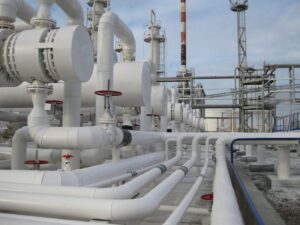
refinery pipelines above were built by the American Chevron Petroleum which at the time of its oil explorations and operation in Sudan was consisted of hundreds of other oil companies such as Parker Drilling and Total in Unity State which is in the Nuer land. If either President were to be the product of any group, they would exploit it to their full advantage and gained something out of it. Without further to say, a leader ought to be remembered and or trusted by the native or people not according to his cleverness, strength, or clarity of his thought but his sense of tradition which is shared with the common people and what he actually does on the grounds that change the lives of people for good or worst.
President Gaafar El Nimeiry
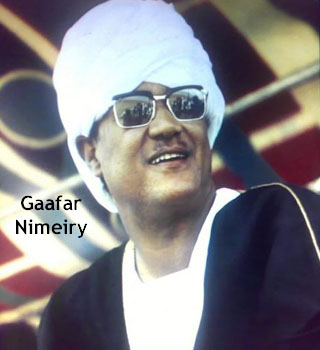
President Omar El Bashir
President Jaapar Nimerie like all his predecessors and successors and the colonists’ governments had failed to deliver any sort of schemes or promises they pledged to the local population for over 200 years. It is time for the local people to do something for their own people.
Look at the two maps: one below indicated where Nuer used to live for over 200 years. The maps on the right is where some of Nuer went there at the time of the civil war.

President Omar Bashir like all his predecessors and successors had failed to deliver any sort of schemes or promises they pledged to the local population for the entire thirty years that he was in power.
Look at the two maps on the right. First, you find Nuer used to live in the middle of Sudan. Now, look at the second world map, you will find that Nuer could be found almost everywhere on the planet because they had been dispersed by the war and devastation in their own country

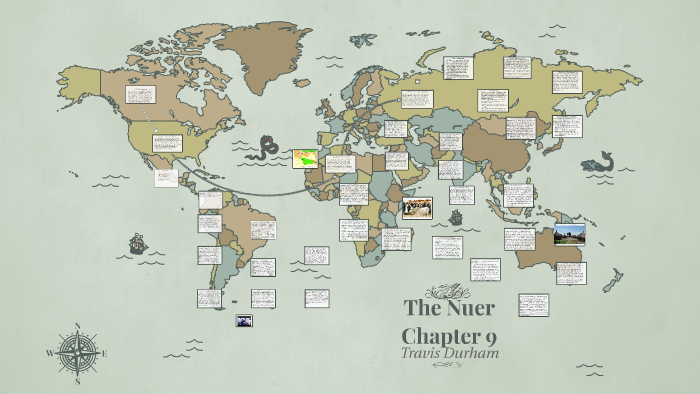
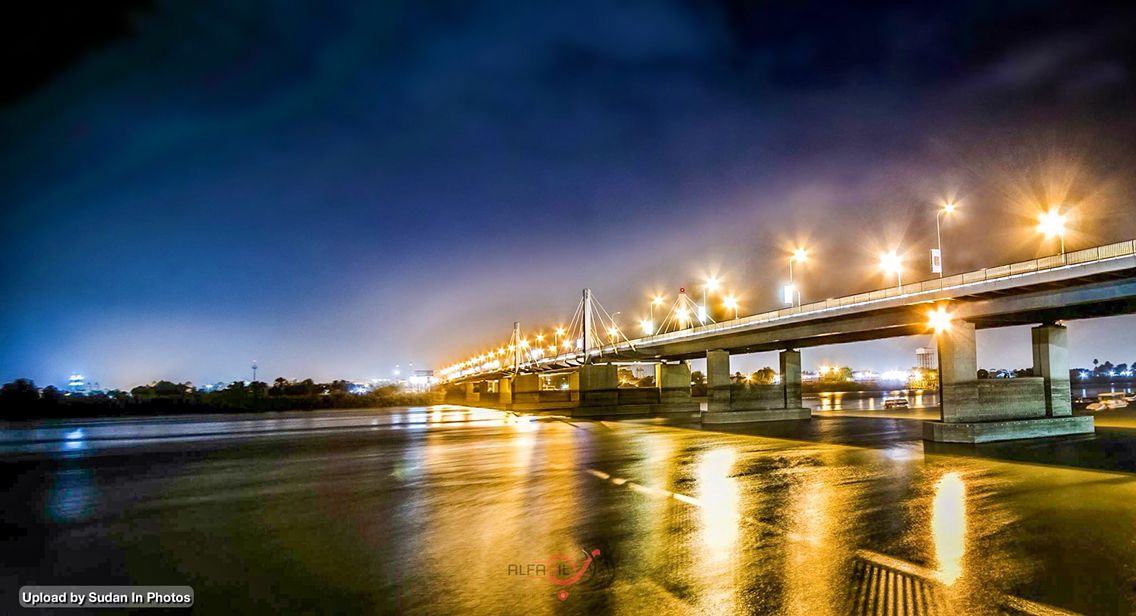


You Can Donate In Three Ways
Cash in ($ USD | euro | £ sterling | other currency)
Steels | Metals | Irons
Cement | Heavy Lifting Equipment | Cranes
Fill Donation Form Today To Change The Causes Of Crises!
Weekdays
08PM -12AM
Weekends
12 PM – 02 AM
Contact
Phone
+44(0) 2045119720
Mobile:
+44 (0) 7538096688

